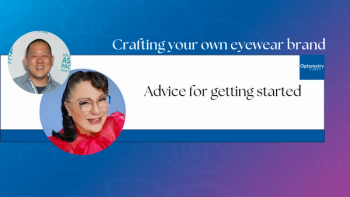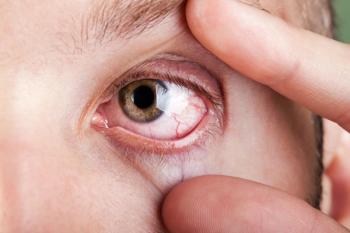
AOA 2023: Providing eye care for athletes
Graham Erickson, OD, FAAO, FCOVD, gives key takeaways of his presentation, "Sports vision grand rounds," which he presented during the 2023 AOA Optometry's Meeting in Washington, DC.
Graham Erickson, OD, FAAO, FCOVD, shares an overview of his AOA 2023 presentation on working with athletes to improve vision, and therefore sports performance.
Video transcript
Graham Erickson, OD, FAAO, FCOVD:
Hi, I'm Graham Erickson. I'm a professor at Pacific University College of Optometry, and one of the lectures I'm doing today is a kind of a grand rounds of sports vision.
So I've kind of worked with athletes for the last 30+ years, and I think that sometimes [when] we think of sports vision, everybody thinks about the training side of sports vision. And certainly that is an aspect of what we do. But we also do a lot of regular, or what I'd call primary eye care services.
So I'll go through some cases. I think one of the big decisions with athletes is prescribing because sometimes we find refractive errors [and] they've never worn or trained with correction before. So how do we make decisions about prescribing? We'll go through some cases that will be focused on prescribing, timing of prescriptions, delivery of that refractive error, is it contact lenses? Is it refractive surgery? Sport protective goggles? What are the best options? Pros and cons of that.
Part of prescribing sometimes for me, too, is about filters. And if we think about sun eyewear and filters in sport, I think a lot of those decisions are made without the advice of optometrists. But we certainly have the education and background to help athletes choose the most effective filter. So we'll talk a little bit about filter prescribing in some of the cases.
And then I'll certainly talk about sports vision training and things we can do either when we're finding a deficit in an athlete, or even not necessarily a deficit, but how can we help an athlete optimize vision? Because you think about what athletes do to train for competition, you're always pushing the physical side, and sometimes the psychological side of preparation. But vision is usually pretty important in terms of your performance, and most athletes aren't really doing anything to help optimize and prepare for competition. So we'll talk about that.
We'll talk about fixing problems. One of the areas that we've seen really grow a lot in the last 10-15 years is concussion identification, and management of the visual consequences of concussion. So I have a case of hockey, no surprise there, of concussion and what we did to sort of manage the consequences of that.
Oh, and then we have eye injuries, too, because the eyes sometimes get injured. And so how do we integrate with care for the injury to the eyes and help them prepare to return to play? So kind of a potpourri of things that touch on I think a lot of different aspects of eye care services, but focused on: What do we do for our competitive athletes that might be a little bit different than we would do for our average patient?
Newsletter
Want more insights like this? Subscribe to Optometry Times and get clinical pearls and practice tips delivered straight to your inbox.













































